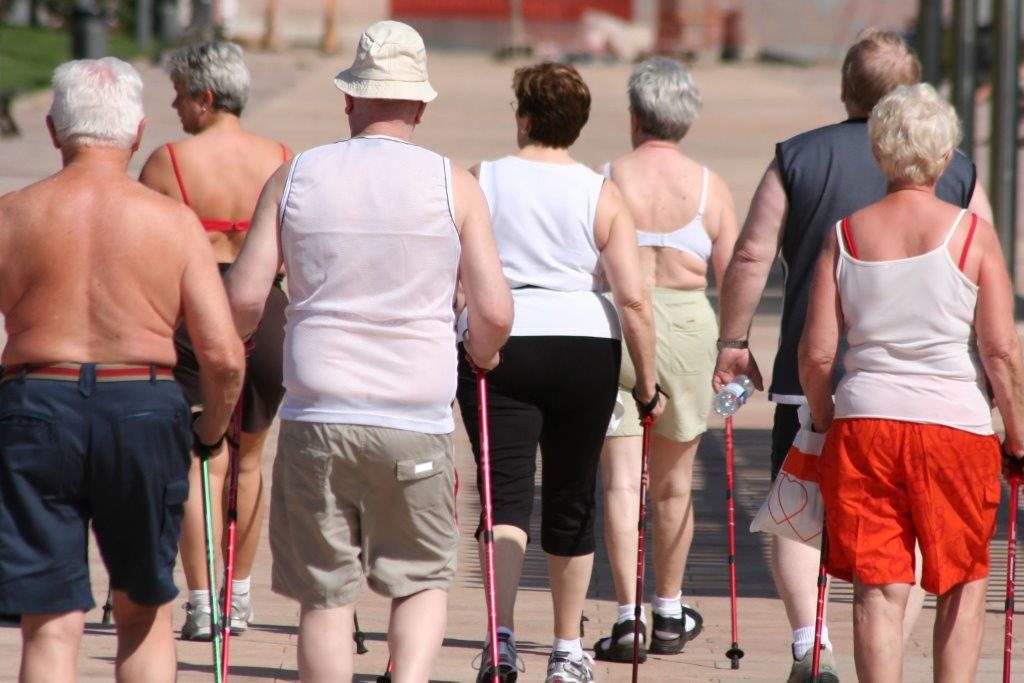
Exercise Helps Obese Older Adults Retain Independence
Research has shown that obesity can limit mobility in older adults. According to a new study published in Obesity (2017; 25 [7], 1199–1205), moderate-intensity exercise may help.
As part of the Lifestyle Interventions and Independence for Elders (LIFE) Study, 1,635 sedentary individuals aged 70–89 completed an exercise- or education-based intervention. The subjects ranged from nonobese (BMI < 30 kg/m2) to class 2+ obesity (BMI ≥ 35 kg/m2).
Those in the exercise group were asked to complete 30 minutes of moderate-intensity walking, 10 minutes of lower-body strength training with ankle weights and 10 minutes
of balance training. Sessions took place twice a week. The education group attended in-person informational workshops. All participants provided data on health status, health history, functional limitations and demographics. BMI measurements were used to determine obesity classification.
Upon analysis, the intervention resulted in a 31% decreased risk of major mobility disability (MMD) in the class 2+ obesity group. The other groups improved, but not as dramatically.
“Older persons with obesity at high risk for mobility disability benefited from a structured moderate-intensity physical activity program, demonstrating a reduced risk of MMD,” said the authors. “The experience of the LIFE trial suggests that such an exercise program is both safe and effective even in persons with class 2+ obesity.”